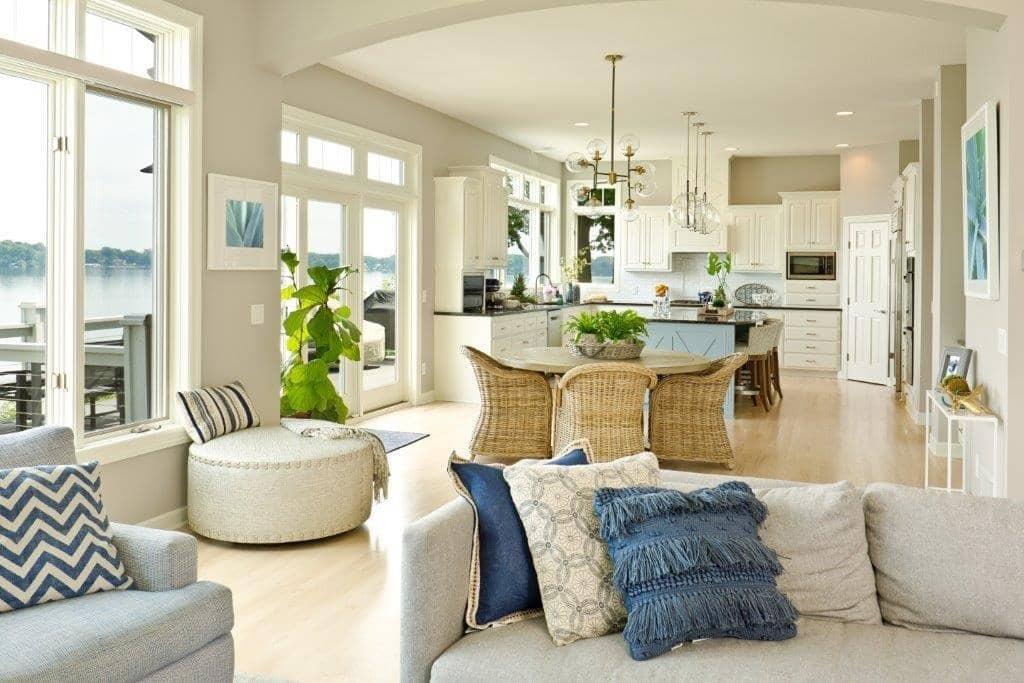Staging a Home
Understanding the Importance of Home Staging
Home staging is a crucial step in the home selling process. A staged home can help to create an emotional connection with potential buyers, making them more likely to envision themselves living in the space. Before staging, it's essential to ensure the home is clutter-free, which is where https://fixit2flip.com/blog/home-prep/efficient-rubbish-removal-solutions come into play, allowing you to focus on highlighting the home's best features, such as natural light, architectural details, and outdoor spaces. Additionally, home staging can help to downplay any flaws or weaknesses in the home, such as small rooms or outdated fixtures.
Preparing Your Home for Staging
Before you start staging your home, it's essential to prepare it for the process. This involves decluttering and depersonalizing the space, making any necessary repairs, and giving the home a deep clean. Start by going through each room and removing any unnecessary items, such as clutter, personal photos, and excessive furniture. This will help to create a sense of openness and flow, making the home feel larger and more welcoming. Next, make any necessary repairs, such as fixing leaky faucets or patching holes in the walls. Finally, give the home a deep clean, paying attention to details such as dusty light fixtures and dirty windows.
Decluttering and Depersonalizing
Decluttering and depersonalizing are critical steps in the home staging process. This involves removing any personal items, such as family photos, collectibles, and heirlooms, and replacing them with neutral decor. It's also essential to remove any clutter, such as stacks of paper, dirty laundry, and excessive furniture. This will help to create a sense of calm and serenity, making the home feel more welcoming and relaxing. Consider renting a storage unit or hiring a professional organizer to help with the decluttering process.
Making Repairs and Improvements
Making repairs and improvements is also an essential part of the home staging process. This involves fixing any broken or damaged items, such as leaky faucets, holes in the walls, and cracked tiles. It's also a good idea to make any necessary cosmetic improvements, such as painting the walls, replacing outdated light fixtures, and installing new flooring. Consider hiring a professional contractor or handyman to help with the repairs and improvements.
Staging Each Room
Staging each room in your home is crucial to creating a cohesive and welcoming space. Here are some tips for staging each room:
Living Room
The living room is often the first room that potential buyers see when they enter a home. To stage a living room, start by removing any clutter and excessive furniture. Arrange the remaining furniture in a conversational circle, and add some decorative touches, such as throw pillows, blankets, and a vase of fresh flowers. Consider adding some plants or a statement piece of art to create a focal point in the room.
Kitchen
The kitchen is often the heart of the home, and it's essential to stage it in a way that makes it feel welcoming and functional. Start by decluttering the counters and sink area, and consider adding some decorative touches, such as a bowl of fresh fruit or a vase of flowers. Arrange the furniture and appliances in a way that creates a sense of flow, and consider adding some plants or a statement piece of art to create a focal point in the room.
Bedrooms
Bedrooms should be staged to feel calm and relaxing, with a focus on creating a sense of serenity and tranquility. Start by removing any clutter and excessive furniture, and consider adding some decorative touches, such as a vase of fresh flowers or a statement piece of art. Arrange the furniture in a way that creates a sense of flow, and consider adding some plants or a comfortable reading chair to create a cozy atmosphere.
Hiring a Professional Home Stager
While it's possible to stage a home on your own, hiring a professional home stager can be a worthwhile investment. A professional home stager has the expertise and experience to create a welcoming and attractive space that will appeal to a wide range of buyers. They can provide valuable advice and guidance on how to stage each room, and can help to identify any areas of the home that need improvement. Additionally, a professional home stager can provide access to a wide range of furniture, decor, and other staging materials, making it easier to create a cohesive and attractive space.
Benefits of Home Staging
The benefits of home staging are numerous. A well-staged home can help to attract more buyers, secure a sale, and even increase the sale price of the home. Additionally, home staging can help to reduce the amount of time that a home spends on the market, making it easier to sell quickly and efficiently. According to the National Association of Realtors, staged homes sell for an average of 10% more than unstaged homes, and spend an average of 30% less time on the market.
Common Mistakes to Avoid
When it comes to home staging, there are several common mistakes to avoid. One of the most significant mistakes is failing to declutter and depersonalize the space. This can make the home feel cluttered and overwhelming, making it difficult for buyers to envision themselves living there. Another mistake is failing to make necessary repairs and improvements, such as fixing leaky faucets or patching holes in the walls. This can make the home feel neglected and uninviting, making it harder to sell.
Conclusion
Staging a home is a crucial step in the home selling process. By decluttering, depersonalizing, and rearranging furniture and decor, you can create a welcoming and attractive space that will appeal to a wide range of buyers. Whether you choose to stage your home on your own or hire a professional home stager, the benefits of home staging are numerous. From attracting more buyers to securing a sale and increasing the sale price, home staging is an investment that's worth considering.
FAQs
What is home staging?
Home staging is the process of preparing a home for sale by making it look its best, both inside and out. This involves decluttering, depersonalizing, and rearranging furniture and decor to create a welcoming and neutral space.
Why is home staging important?
Home staging is important because it helps to create an emotional connection with potential buyers, making them more likely to envision themselves living in the space. A well-staged home can also help to highlight its best features and downplay any flaws or weaknesses.
How much does home staging cost?
The cost of home staging varies depending on the size of the home, the amount of staging required, and the location. On average, home staging can cost anywhere from $500 to $5,000 or more.
Do I need to hire a professional home stager?
While it's possible to stage a home on your own, hiring a professional home stager can be a worthwhile investment. A professional home stager has the expertise and experience to create a welcoming and attractive space that will appeal to a wide range of buyers.
How long does home staging take?
The amount of time it takes to stage a home varies depending on the size of the home and the amount of staging required. On average, home staging can take anywhere from a few days to a few weeks or more.
Can I stage my home myself?
Yes, it's possible to stage your home yourself. However, hiring a professional home stager can be a worthwhile investment, as they have the expertise and experience to create a welcoming and attractive space that will appeal to a wide range of buyers.


